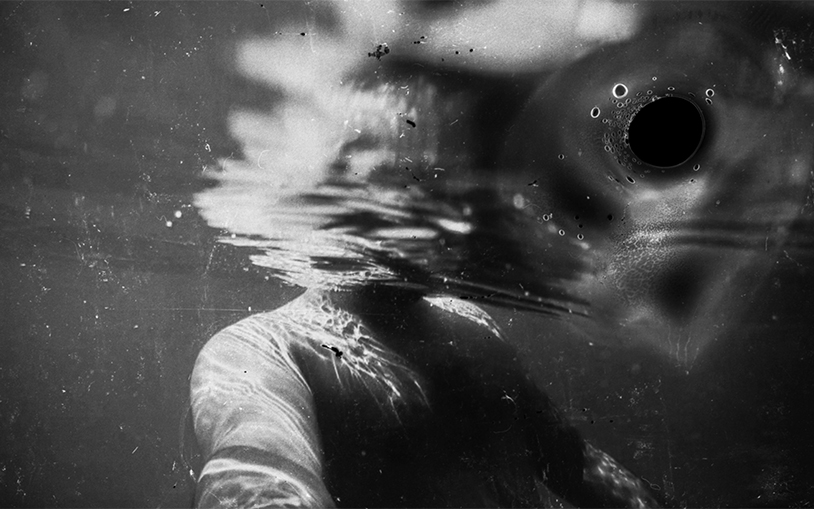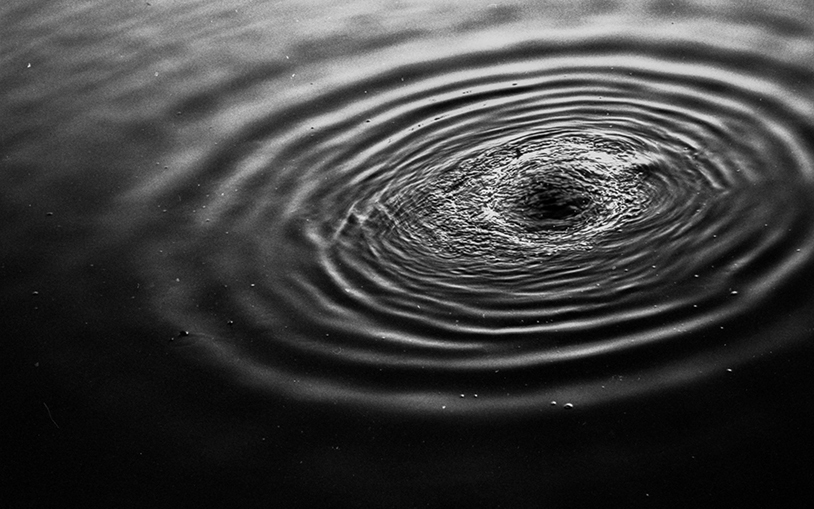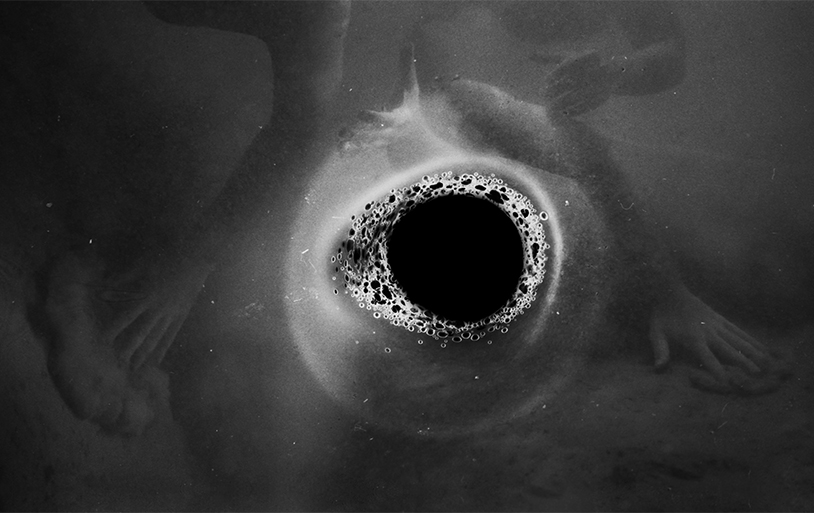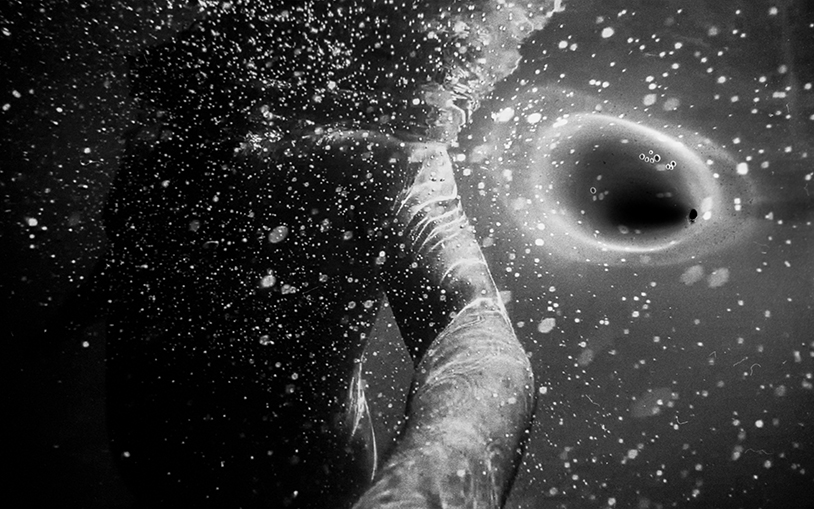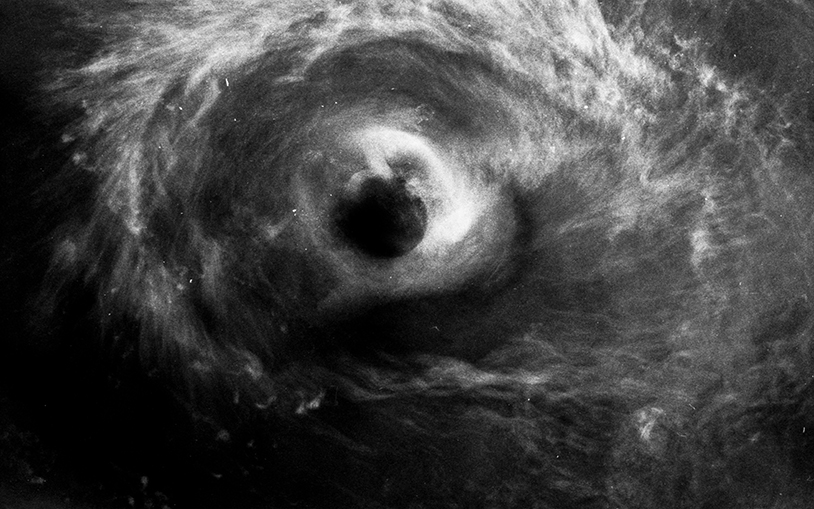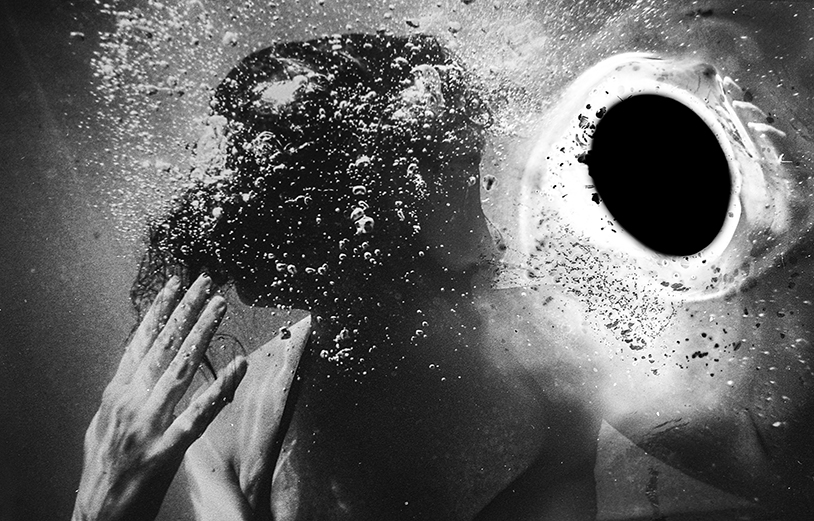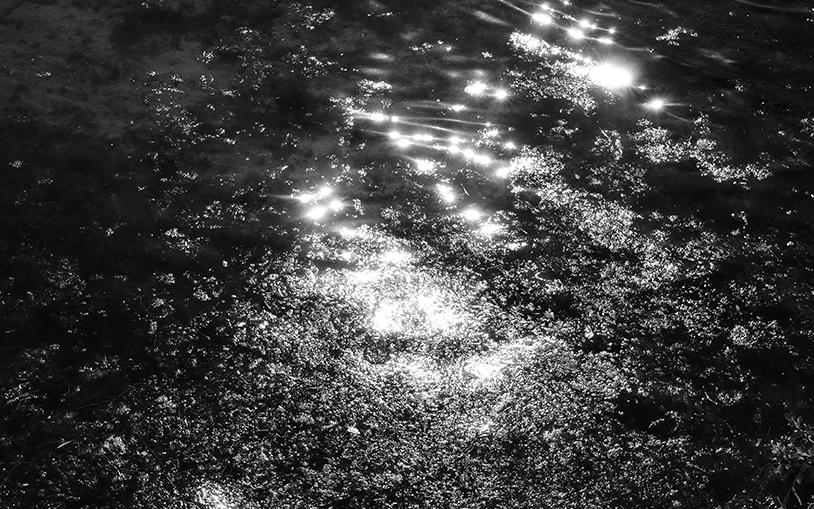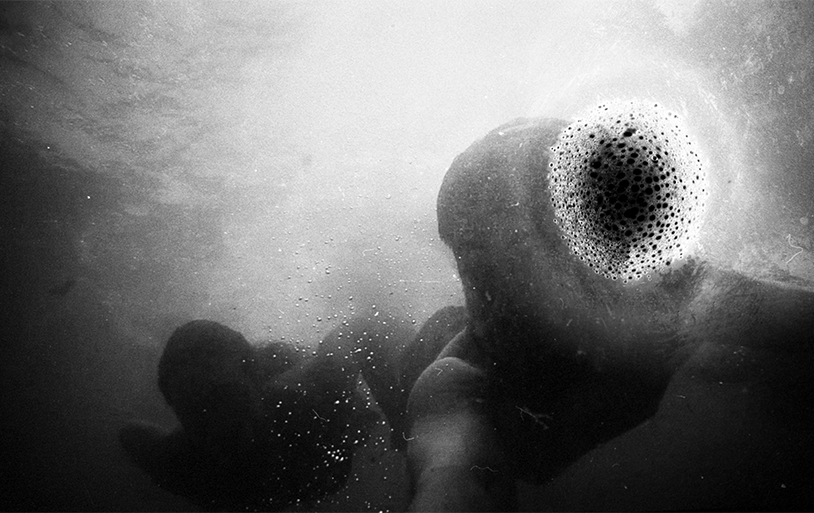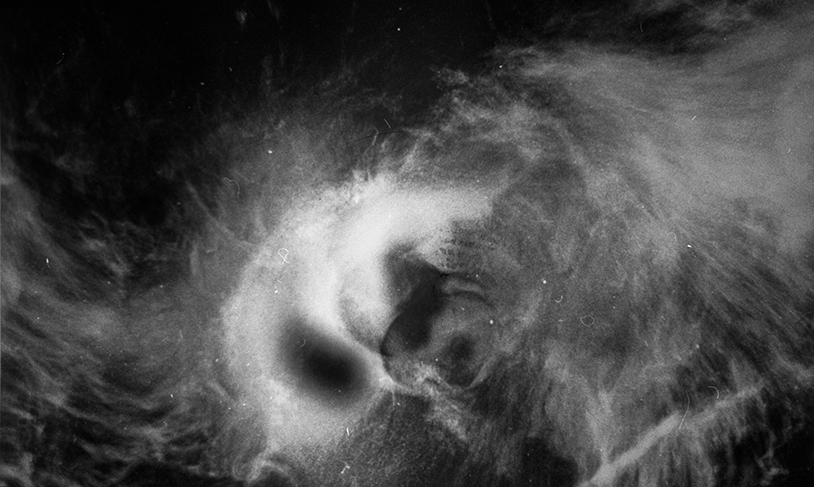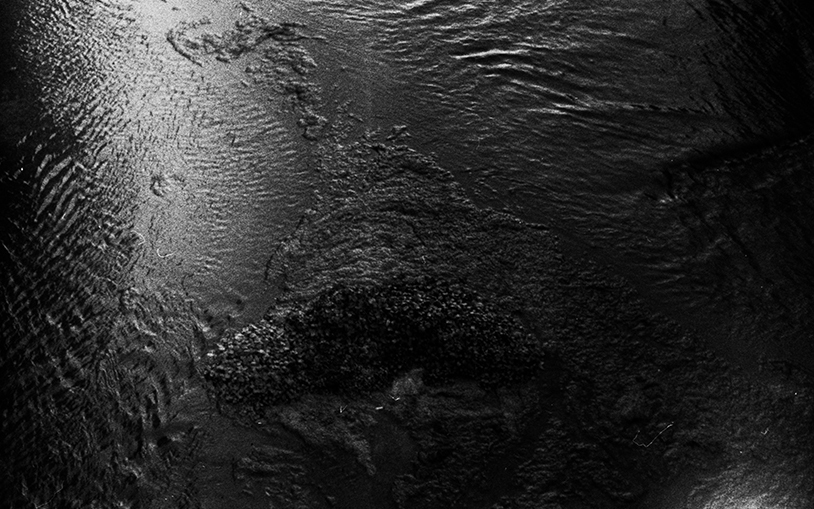EVENT HORIZON
(OLAY UFKU)
If we imagine our body as a micro-scale universe in our lives which has been emerged from water, how do we know that the memories we lose are not attracted to the gravitational force of a black hole in our memory?
Black holes are voids in space which remain a mystery today. The event horizon, on the other hand, is defined as the boundary of black holes, the point of no return. Escape from the black hole becomes impossible for light and matter passing through this boundary; beyond it is unknown… Whatever happens inside black holes is unimaginable. Hawking describes this as, “It is said that fact is sometimes stranger than fiction, and nowhere is that more true than in the case of black holes.”
One of the structures that still preserves its mystery about humanity is the memory. The memory, where remembering and forgetting are happening at the same time, cannot resist the ravage of time, like everything else. This ravage displays its effect from time to time in the rebuilding process of memory, and from time to time in memories those are sunken too deep to be recalled. Considering the structure of the memory, we cannot separate the remembering process from the forgetting process. After all, what we remember is a selection of the remnants of what we forget.
In this context, in human life based on accretion, can we say that while the presence of black holes in the memory spreads with the continuous act of storing, some of the memories cross the border of the event horizon and drift towards the unknown?
* * *
Black holes are voids in space which remain a mystery today. The event horizon, on the other hand, is defined as the boundary of black holes, the point of no return. Escape from the black hole becomes impossible for light and matter passing through this boundary; beyond it is unknown… Whatever happens inside black holes is unimaginable. Hawking describes this as, “It is said that fact is sometimes stranger than fiction, and nowhere is that more true than in the case of black holes.”
One of the structures that still preserves its mystery about humanity is the memory. The memory, where remembering and forgetting are happening at the same time, cannot resist the ravage of time, like everything else. This ravage displays its effect from time to time in the rebuilding process of memory, and from time to time in memories those are sunken too deep to be recalled. Considering the structure of the memory, we cannot separate the remembering process from the forgetting process. After all, what we remember is a selection of the remnants of what we forget.
In this context, in human life based on accretion, can we say that while the presence of black holes in the memory spreads with the continuous act of storing, some of the memories cross the border of the event horizon and drift towards the unknown?
* * *
Suda türeyen yaşamlarımızda bedenimizi mikro ölçekli bir evren olarak düşlersek, yitirdiğimiz anıların belleğimizdeki bir kara deliğin çekim kuvvetine kapılmadığını nereden bilebiliriz?
Kara delikler, günümüzde gizemini hâlâ koruyan, uzaydaki kara boşluklardır. Olay ufku ise kara deliklerin dönüşü olmayan bir noktayı belirleyen sınırı olarak tanımlanmaktadır. Bu sınırdan geçen ışık ve madde için kara delikten kaçış olanaksız hale gelir, sonrası ise bilinmezlik… Kara deliklerin içerisinde olup biten hayal edilemeyecek boyuttadır. Hawking bunu, “Gerçek bazen kurgudan gariptir ve bu sözün geçerli olduğu yer kara deliklerdir.” şeklinde ifade eder.
İnsanlıkla ilgili gizemini hâlâ koruyan yapılardan biri ise bellektir. Hatırlama ve unutmayı aynı anda içinde barındıran bellek -hiçbir şeyin karşı koyamadığı gibi- zamanın aşındırıcı etkisine karşı koyamaz. Bu aşınım, zaman zaman belleğin yeniden inşa sürecinde, zaman zaman da geri çağrılamayacak kadar diplere gömülmüş anılarda etkisini gösterir. Belleğin yapısı düşünüldüğünde, hatırlama sürecini unutma sürecinden ayrı düşünemeyiz. Nihayetinde hatırladıklarımız, unuttuklarımızın artakalanlarından oluşan bir seçkidir.
Bu bağlamda, biriktirme üzerine kurulu insan yaşamında, bellekteki kara deliklerin mevcudiyeti, depolama eyleminin devamlılığıyla artarken anıların bir kısmının olay ufkundan geçip bilinmezliğe doğru sürüklenmesinden söz edebilir miyiz?
Kara delikler, günümüzde gizemini hâlâ koruyan, uzaydaki kara boşluklardır. Olay ufku ise kara deliklerin dönüşü olmayan bir noktayı belirleyen sınırı olarak tanımlanmaktadır. Bu sınırdan geçen ışık ve madde için kara delikten kaçış olanaksız hale gelir, sonrası ise bilinmezlik… Kara deliklerin içerisinde olup biten hayal edilemeyecek boyuttadır. Hawking bunu, “Gerçek bazen kurgudan gariptir ve bu sözün geçerli olduğu yer kara deliklerdir.” şeklinde ifade eder.
İnsanlıkla ilgili gizemini hâlâ koruyan yapılardan biri ise bellektir. Hatırlama ve unutmayı aynı anda içinde barındıran bellek -hiçbir şeyin karşı koyamadığı gibi- zamanın aşındırıcı etkisine karşı koyamaz. Bu aşınım, zaman zaman belleğin yeniden inşa sürecinde, zaman zaman da geri çağrılamayacak kadar diplere gömülmüş anılarda etkisini gösterir. Belleğin yapısı düşünüldüğünde, hatırlama sürecini unutma sürecinden ayrı düşünemeyiz. Nihayetinde hatırladıklarımız, unuttuklarımızın artakalanlarından oluşan bir seçkidir.
Bu bağlamda, biriktirme üzerine kurulu insan yaşamında, bellekteki kara deliklerin mevcudiyeti, depolama eyleminin devamlılığıyla artarken anıların bir kısmının olay ufkundan geçip bilinmezliğe doğru sürüklenmesinden söz edebilir miyiz?
2022
